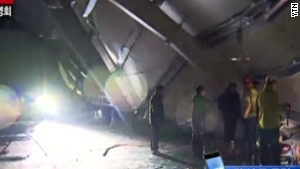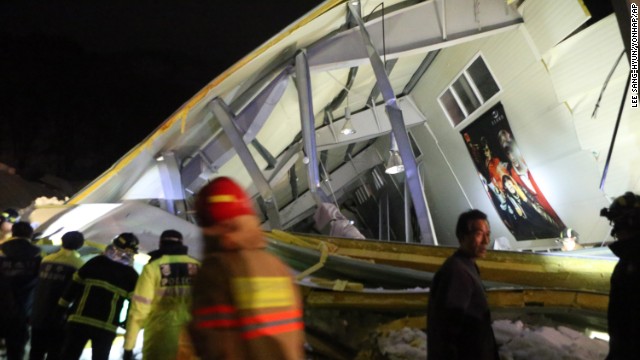Reports: 8 killed, dozens trapped in South Korea building collapse
February 17, 2014 -- Updated 1749 GMT (0149 HKT)
.
(CNN) -- A building where college students were gathered in South Korea collapsed Monday night, killing eight people and trapping about 50 others, South Korea's semiofficial Yonhap news agency reported, citing police.
More than 560 first-year
college students were in the building in the southern city of Gyeongju
for a freshmen welcoming party when the collapse happened at 9:11 p.m.,
Yonhap reported.
About 70 people have been taken to hospitals in the nearby city of Ulsan, according to Yonhap.
The students attend Busan
University of Foreign Affairs, about 80 kilometers south of the where
the party took place, Yonhap reported.

Deaths, dozens trapped in ceiling collapse
.
Gyeongju is about 300 kilmoeters south of the country's capital, Seoul.
Authorities said heavy
snow was on the building's roof, but the cause of the collapse wasn't
immediately determined, according to Yonhap.


No comments:
Post a Comment